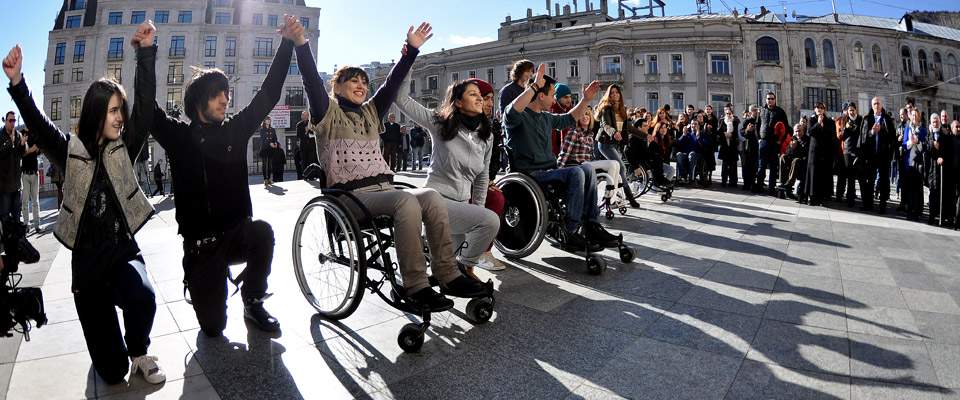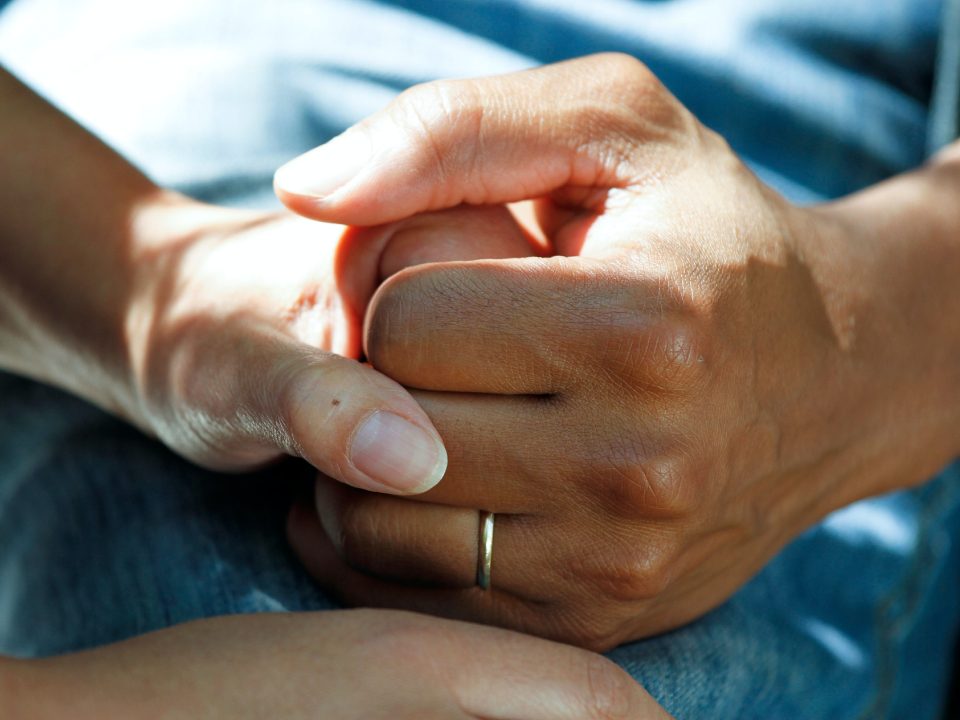Living Our Charism
November 30, 2015
Jesus the Refugee
December 18, 2015By Sister Karen Zielinski, OSF
Famous people can affect our attitudes and awareness of all kinds of disability.
The Donald was The Bully.
It all started when U.S. Republican presidential candidate Donald Trump spoke to supporters at the Myrtle Beach Convention Center in Myrtle Beach, South Carolina, on November 24, 2015.
Trump was defending his contention that “thousands of people” cheered the September 11 terrorist attack in New Jersey. He did an impression of a reporter’s physical handicap.
He described a 2001 Washington Post story to the audience like this: “It says in Jersey City, within hours of two jet liners plowing into the World Trade Center, law enforcement authorities detained and questioned a number of people who were allegedly seen celebrating the attack and holding tailgate style parties — you know what tailgates are? That’s like for football games. A lot of people on rooftops and also, by the way, on streets. On rooftops while they watched the devastation on the other side of the river.”
The Washington Post’s Glenn Kessler fact checked Trump’s Jersey City account and found it to be false. One person he contacted during his reporting was Serge Kovaleski, who told him, “I certainly do not remember anyone saying that thousands or even hundreds of people were celebrating.”
Officials have said that did not happen, and the original story did not suggest “thousands” were celebrating, as Trump has claimed. The Washington Post said “an extensive examination of news clips from that period turns up nothing.”
Trump commented on reporter Serge Kovaleski , “Written by a nice reporter. Now the poor guy. You ought to see this guy.”
Politico (a magazine that covers political news about campaigns, Congress, lobbyists) reported Trump made fun of Kovaleski verbally, and then launched “into an impression which involved gyrating his arms wildly and imitating the unusual angle at which Kovaleski’s hand sometimes rests.”
Kovaleski suffers from arthrogryposis, which according to the National Institutes of Health, can impact the function and range of motion of joints and can cause muscles to atrophy. Kovaleski was familiar with Trump, because he covered Trump for many years when he worked for the New York Daily News. The New York Times, where Kovaleski is currently an investigative reporter, blasted Trump.
“We think it’s outrageous that he would ridicule the appearance of one of our reporters,” a spokesman for The Times told NBC News.
Donald Trump was way out of line. I am not speaking about his political agenda, but his insensitivity and rudeness to a person with a disability. It offended me, and many people who live with or without a disability. One has to walk a very sensitive and informed line when talking about people, not just those with a disability.
Actor Michael J. Fox has Parkinson’s disease. He helps raise funds and awareness of its symptoms. Montel Williams, and Richard Pryor and the late Annette Funicello live(d) with multiple sclerosis. Other celebrities tell the story of their journey with breast or brain cancer.
Many celebrities– famous and well known people—live with various disabilities and conditions. They include actors, actresses, singers, reality show stars, politicians, world leaders and writers who contributed to society. Because they are well known (more popular than the average Jane Doe, like you and me) they have an immediate, large audience. They also make us aware that anyone can be a patient and they raise awareness of many medical conditions or causes. They seem to use their fame to do good.
People are influenced by what they say. Often, they educate people on wellness, prevention, current medical procedures and medications for their conditions, and they raise money for research. That offers hope to people who deal with physical challenges every day.
Celebrities, whatever you do, do no harm. Raise awareness about your cause, volunteer, set up programs that help, raise funds to help. Do not make fun of disability. Respect every living person.
Think before you talk. Thousands of fans are influenced by what you say and do.







